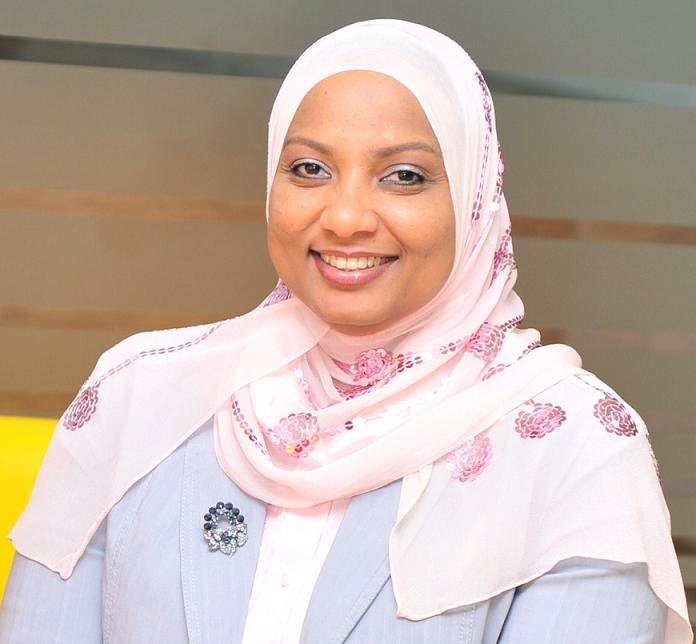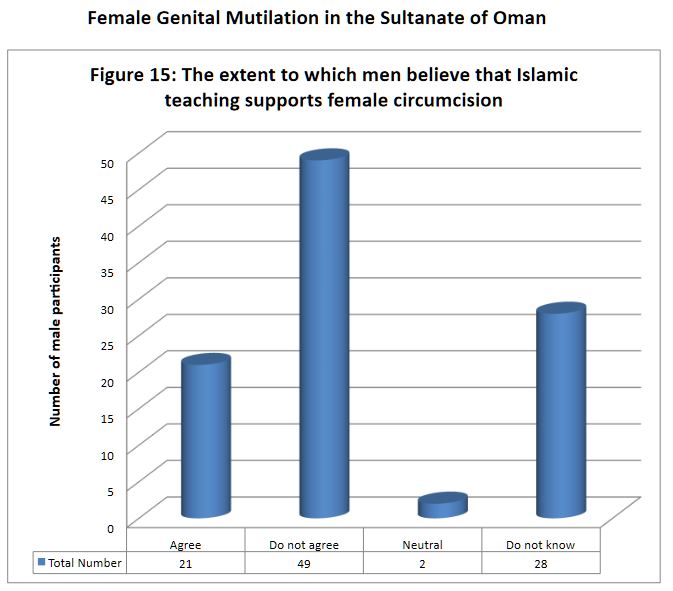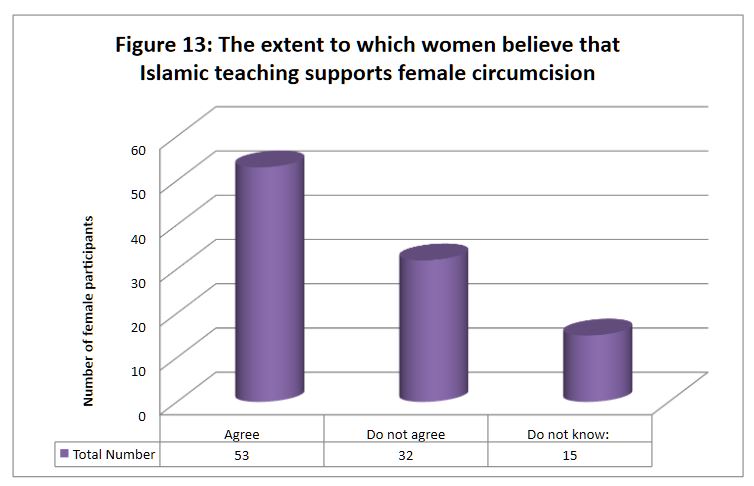In Oman we have to struggle against FGM in the name of Islam: Habiba al-Hinai
By Milena Rampoldi, ProMosaik. I would
like to introduce you in the following interview to FGM in Oman. The expert who
wrote about this phenomenon, kept in secrecy in the country, is the brave
feminist activist Habiba al-Hinai whose study you can find here, and which she conducted in cooperation
with Stop FGM MidEast. I would like to thank Habiba for
having answered my questions about FGM in Oman and about the possible solutions
to end it by promoting a feminist view of Islam and by fighting the phenomenon
in the name of Islam.
like to introduce you in the following interview to FGM in Oman. The expert who
wrote about this phenomenon, kept in secrecy in the country, is the brave
feminist activist Habiba al-Hinai whose study you can find here, and which she conducted in cooperation
with Stop FGM MidEast. I would like to thank Habiba for
having answered my questions about FGM in Oman and about the possible solutions
to end it by promoting a feminist view of Islam and by fighting the phenomenon
in the name of Islam.

Milena Rampoldi: Oman is very
progressive in the field of women‘s rights. How can FGM be overcome?
progressive in the field of women‘s rights. How can FGM be overcome?
Habiba al-Hinai: First of all, we need
to convince the Omani authorities to admit loudly to the local society and the
international organisation that we have this problem. In the last UPR report
the Omani representative’s comments were that FGM was not widely practiced in
Oman and was fading away, which is not the case. Another obstacle is that the
highest religious authority in Oman encourages the practice by linking it with
religion.
to convince the Omani authorities to admit loudly to the local society and the
international organisation that we have this problem. In the last UPR report
the Omani representative’s comments were that FGM was not widely practiced in
Oman and was fading away, which is not the case. Another obstacle is that the
highest religious authority in Oman encourages the practice by linking it with
religion.
MR: How can Muslim feminists help to
openly talk about FGM and to eliminate it?
openly talk about FGM and to eliminate it?
HaH: FGM is still a tradition in Oman
like it is in many countries in my region. This makes it very difficult for the
victims to come forward and speak out. When I introduced this issue to my local
society for the first time, the topic shocked and shook the society and
everyone was trying to advise me to close this subject. Therefore I was badly
attacked in the social media with disinformation. Also the Omani authorities
didn’t want me to continue discussing this
issue as it would cause an embarrassment with the international organisations.
Another obstacle is that some highly educated Omani women are supporting FGM due
to of lack of awareness programs. FGM is not allowed to be discussed in the
local media, in women’s associations, or any kind of a study or research even
for the medical students at our local universities. So what we really need are
strong Muslim women from my region who despite being under fire, are capable of talking about FGM and starting an
awareness campaign.
like it is in many countries in my region. This makes it very difficult for the
victims to come forward and speak out. When I introduced this issue to my local
society for the first time, the topic shocked and shook the society and
everyone was trying to advise me to close this subject. Therefore I was badly
attacked in the social media with disinformation. Also the Omani authorities
didn’t want me to continue discussing this
issue as it would cause an embarrassment with the international organisations.
Another obstacle is that some highly educated Omani women are supporting FGM due
to of lack of awareness programs. FGM is not allowed to be discussed in the
local media, in women’s associations, or any kind of a study or research even
for the medical students at our local universities. So what we really need are
strong Muslim women from my region who despite being under fire, are capable of talking about FGM and starting an
awareness campaign.
MR: Which method did you use to study
this phenomenon in Oman?
this phenomenon in Oman?
HaH: Unfortunately I had to use very
basic tools, complete the study by myself, and face the consequences for the
reasons mentioned in my small study. I tried as much as possible to to get
different opinions and perspectives from women, men, and the Mufti — the top religious authority. Although I failed to get
any official opinions because none of
those I approached were prepared to comment on
FGM. I hope in the near future to be able to conduct a wider study but
unfortunately this is not currently possible.
basic tools, complete the study by myself, and face the consequences for the
reasons mentioned in my small study. I tried as much as possible to to get
different opinions and perspectives from women, men, and the Mufti — the top religious authority. Although I failed to get
any official opinions because none of
those I approached were prepared to comment on
FGM. I hope in the near future to be able to conduct a wider study but
unfortunately this is not currently possible.
MR: Which are the main messages of the
women you talked to about FGM?
women you talked to about FGM?
HaH: The main messages were from the
victims who hoped that I could be their voice and succeed to end FGM in Oman
without having them to speak out which I think it is not possible.
victims who hoped that I could be their voice and succeed to end FGM in Oman
without having them to speak out which I think it is not possible.
MR: What do you think is the best
strategy to implement in Oman to fight FGM?
strategy to implement in Oman to fight FGM?
HaH: Victims must speak out. Omani
authorities must criminalise the practice of FGM and allow the promotion of
awareness programs for men and women through local NGO’s. Gain support from grand Mufti to end FGM.
authorities must criminalise the practice of FGM and allow the promotion of
awareness programs for men and women through local NGO’s. Gain support from grand Mufti to end FGM.
MR: FGM is not Islamic. As Muslim
feminist, I think that we have to fight FGM in the name of true Islam. What do
you think about that?
feminist, I think that we have to fight FGM in the name of true Islam. What do
you think about that?
HaH: I totally agree. We have to fight
against FGM by starting from Islam and the perfectness of Allah’s creation. Allah does not allow us to
destroy our body, and to mutilate it.
against FGM by starting from Islam and the perfectness of Allah’s creation. Allah does not allow us to
destroy our body, and to mutilate it.
MR: Which are the main conclusions of
your study?
your study?
HaH: I would say that the most
important conclusions are as follows:
important conclusions are as follows:
– Conduct a nationwide research study
on FGM.
on FGM.
– Make the religious opinion about FGM
known to the public.
known to the public.
– Allow women to freely decide about
their circumcision after they reach adulthood.
their circumcision after they reach adulthood.
– Establish special rules and
legislations that ban FGM.
legislations that ban FGM.
– Organise awareness programs and
campaigns.
campaigns.
– Suggest special support programs for
FGM victims.
FGM victims.
– Activate the role of Omani civil
society institutions and women organisations to mainstream the issue of female
circumcision in their projects.
society institutions and women organisations to mainstream the issue of female
circumcision in their projects.
– Suggest a transparent discussion of
FGM through the various local media outlets.
FGM through the various local media outlets.
– Organise sessions, programs, and
workshops on this phenomenon.


workshops on this phenomenon.




